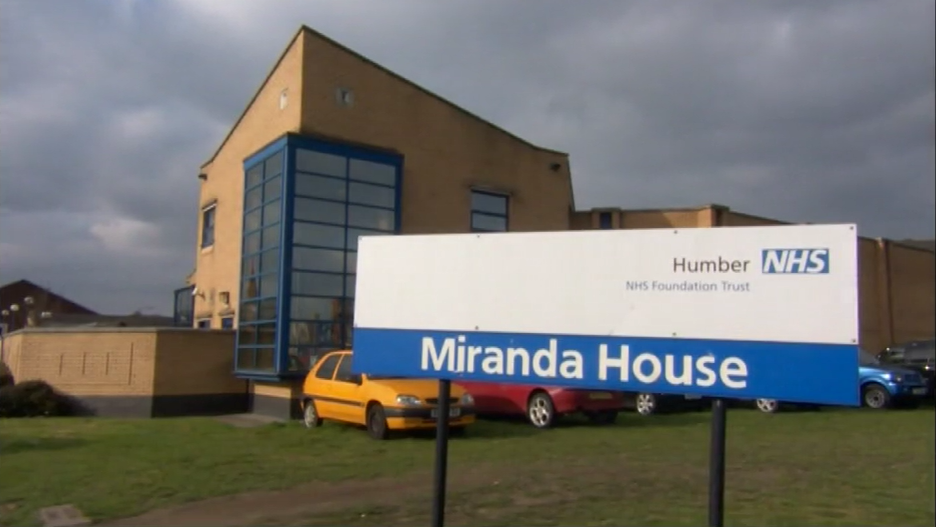Nurse defends number of patient checks before death

David Peter Roberts took his own life at Miranda House in 2023
- Published
A nurse at a mental health unit has defended the number of observations that were carried out on a patient who took his own life while in the unit's care.
It came on the first day of an inquest at Hull Coroner's Court into the circumstances surrounding the death of David Peter Roberts on 14 August 2023.
Mr Roberts, 51, was found hanged at Miranda House in Gladstone Street, Hull.
Staff nurse Wayne Mennell said: "He was working with us, we were engaging with him more often than was recommended and he was taking his medication."
The court heard Mr Roberts was taken to Hull Royal Infirmary on 8 August 2023 after feeling "scared and anxious" following the death of his father earlier that year. He was transferred to Miranda House on the same day.
Mr Mennell, who has worked at the unit for seven years, described Mr Roberts as "absolutely fine" upon arrival but said: "It was clear he was heartbroken and hit for six about the death of his dad."
Following an assessment by Mr Mennell and an on-call doctor, it was agreed Mr Roberts would be observed every four hours after it was judged there was "no perceived risk".
But the court heard that Mr Roberts, who had a history of mental health issues, became "more paranoid and argumentative" over the following days. He was given anti-psychotic medication and sectioned under the Mental Health Act.
Mr Mennell described how Mr Roberts had threatened staff with a kitchen knife and said he would harm himself. He also handed his shoelaces to staff, saying he was having "bad thoughts".
Representatives for Mr Roberts's family asked why he was not placed under closer observation on the day of his death. Mr Mennell said it was deemed not to be necessary.
He added: "If someone is exhibiting severe risk of harming themselves we can put them under constant observation, but that is intrusive and only used as a last resort.
"Most of the people that come on to the ward want to kill themselves or do themselves harm. We have to assess that risk and how strong those feelings are."
'A gentle giant'
Mr Mennell said Mr Roberts had been "apologetic" about his behaviour on the day of his death but was later seen "pacing up and down his room, slapping walls and muttering to himself".
Staff reported seeing Mr Roberts's bedroom light turned off at 03:25 GMT and he was checked again at 06:10 GMT – within the four-hour observation period.
Mr Mennell said: "I got to David's room and I could see a silhouette slouched against the bathroom door. I raised the alarm."
Staff at the unit administered CPR and used a defibrillator in an attempt to revive Mr Roberts but paramedics pronounced him dead at the scene an hour later.
Earlier in the hearing, Dr Naomi Goodman, a GP at the James Alexander Family Practice where Mr Roberts was a patient, said his history of mental health problems dated back to 1999.
His medical records showed he "had a clear history of mental health issues" including schizophrenia, generalised anxiety disorder and depression. He also had issues with substance misuse and drug psychosis.
A statement from Mr Roberts's sister Kim was read out.
She described her brother as a "loving and caring gentle giant" who was "adored by everyone".
She added that the deaths of her parents, Valeria and Henry, who Mr Roberts lived with, had left him feeling "sad and empty".
The inquest continues.
If you are affected by issues raised in this article, help and support is available via the BBC Action Line.
Listen to highlights from Hull and East Yorkshire on BBC Sounds, watch the latest episode of Look North or tell us about a story you think we should be covering here, external.